The Ruderal Library 2019, 5.5′ x 6′ x 7′. A mobile ruderal seed library built into the back of a pickup truck
The Ruderal Library is an activated art object that seeks to represent an ecologically oriented perspectival shift in the domains of the “natural” and the “urban” from opposites to symbiotic partners. Throughout post-industrial landscapes we can identify botanical adaptations to contaminated soil. Opportunistic plants remediate toxic conditions, epitomizing the impressive will of Nature’s ability to adapt in the most polluted places on our planet. This shift is nowhere more apparent than in the aging railyards of America.
Seventy five percent of the world’s biodiversity was lost from 1900-2000. Since the arrival of the railroads in the 1850s, Chicago has been a formidable industrial city driving the loss of its diverse prairie ecosystem. Plants able to withstand the rapidly changing landscape and climate of Chicago are not only surviving but they are thriving. Our polluted, urban landscapes are increasingly becoming some of the most biodiverse environments in the Anthropocene. Instead of discouraging or dismissing this new adaptive ecology, humanity has the opportunity to readjust our perception of “nature” and “urban” and shift our trajectory accordingly. The effects of industry cannot be undone, but we can acknowledge and participate in the ecosystem of that which remains.

The Ruderal Library 2019, 5.5′ x 6′ x 7′. A mobile ruderal seed library built into the back of a pickup truck
The Ruderal Library is a mobile weedy plant seed library built into the back of a pickup truck and the anchor for a series of four events held at the four Union Pacific railroad yards in Chicago. Each event will introduce and explore, through various lenses, the aggressive, opportunistic plants of the Anthropocene and the expansive biodiversity they lay a foundation for. Partnering with urban ecology organizations and professionals, the Ruderal Library will lead a harvest of heavy metal hyperaccumulator plants, a workshop on herbal detoxification, a collection of invasive species seeds, and a colloquium of anthropomorphism and environmental racism.
The Union Pacific Railroad Company was responsible for completing the transcontinental railroad, and the subsequent industrial boom in the United States. The proposed locations for these events include the physical sites of the Golden Spike—which connected the branches of the transcontinental railroad as well—as marking the metaphorical site for the Golden Spike for the Anthropocene. In addition to accelerating the movement of people and goods, railway traffic was vital to the spread of foreign seeds. The majority of these successful migrants are of the weedy variety, due primarily to their willingness to adapt and persist in human altered environments. The railyard— unmanicured and undisturbed by human intervention or conservation —provides a space for its own characteristic combination of species. Each event invites participants to take a closer look at some of the most forward thinking, biodiverse ecosystems to survive the human-impacted epoch.
As an anchor for engagement, this project represents an attempt to repair our fractured relationship with the Earth. It will also provide an opportunity for Chicago’s residents to be reminded of their reciprocal and ever evolving relationship with Nature. Woven into this understanding is a recognition that every small act of repair and restitution constitutes a seed within this revolution.

The Last Spike 2019, 1″ x .25″ x .25″ Tiny railroad spike made of metal smelted from Japanese Knotweed collected from Union Pacific Rail yard in Chicago, IL
It is envisaged that the positive impact of the Ruderal Library’s event series will be widespread in both scope and reach. The project seeks to empower urban dwellers to reconsider societal/ ecological binaries and metaphors, to explore the healing capabilities of weeds, and to reimagine the future of conservation and biodiversity in post-industrial landscapes. This series will also offer practical knowledge in conjunction with ecologically oriented perspectival shifts in the form of seed saving, ecological analysis, historical context, detoxification tea preparation, and soil testing to support patrons towards a formation of self-sufficiency and collective resourcing.
Seeking to both return Chicago to its 1830s motto “Urbs in Horto” (City In the Garden), and to effectively reimagine how these terms might be reinterpreted in the age of the Anthropocene, it is hoped that this pilot project has the potential to spread to other cities across America.




